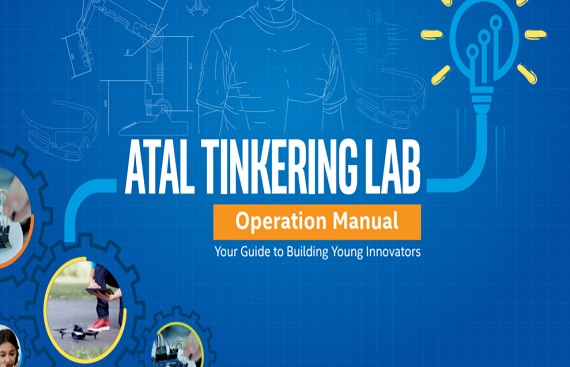10,000 Atal Tinkering Labs Empower the Next Generation of Thinkers
By
siliconindia | Friday, 06 June 2025, 12:31 Hrs

- 10,000 Atal Tinkering Labs have been established since 2016, engaging over 1.1 crore students in innovation and problem-solving.
- The Union Budget 2025 aims to set up 50,000 more labs in government schools over the next five years.
- Initiatives like ANRF (Rs 50,000 crore investment) and One Nation One Subscription are strengthening India’s scientific research and global innovation presence.
In a significant milestone for India’s innovation ecosystem, Finance Minister Nirmala Sitharaman announced that 10,000 Atal Tinkering Labs (ATLs) have been established across the country in the past 11 years under the Atal Innovation Mission (AIM) by NITI Aayog. Highlighting this development on X (formerly Twitter), the Finance Minister stated that these labs are igniting a 'maker mindset' among school students, where curiosity and creativity translate into real-world innovations.
Since their inception in 2016, ATLs have been at the forefront of nurturing grassroots innovation among children. According to government data, these labs have already contributed to over 12 lakh innovation projects, engaging more than 1.1 crore students in STEM-based learning and creative problem-solving.
Among the states, Maharashtra leads with the highest number of labs (1,033), followed by Tamil Nadu (975) and Uttar Pradesh (955). The initiative has become a cornerstone in the government’s strategy to strengthen foundational scientific thinking among youth.
Building on this success, the Union Budget 2025 announced the ambitious plan of setting up 50,000 more ATLs in government schools over the next five years, to further democratize access to innovation tools and technologies.
In tandem, the government has launched the Anusandhan National Research Foundation (ANRF) with a substantial investment of Rs 50,000 crore to boost research capacity in Indian universities and institutions. Another critical reform is the One Nation One Subscription initiative, which has already enabled 1.8 crore students, researchers, and faculty to access over 13,000 international journals from 30 global publishers.
These efforts collectively mark a transformative shift in India's education and innovation landscape, making it a formidable contender in the global science and research arena.
